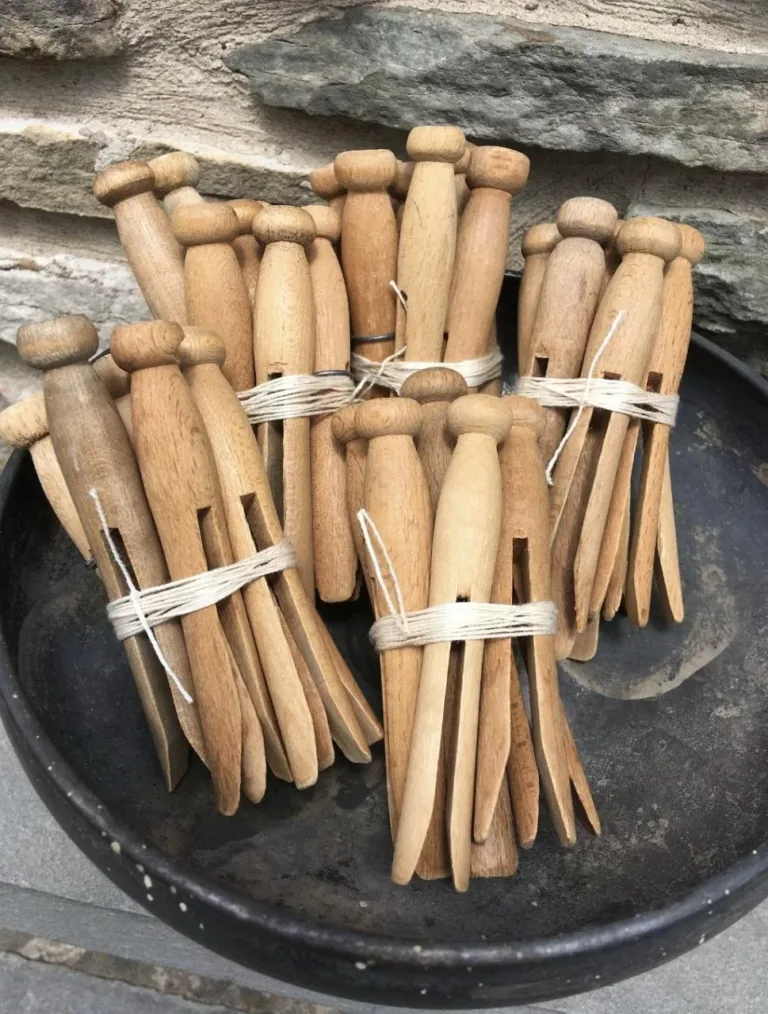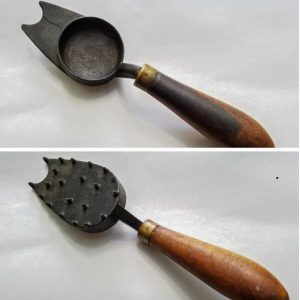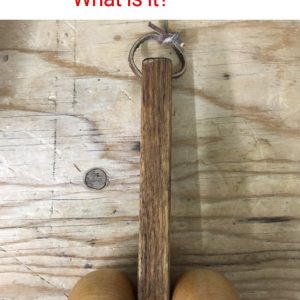Wooden clothespins, with their simple yet practical design, have been a household staple since the 19th century. These unassuming tools have a fascinating past and an enduring relevance that makes them just as useful today as they were over a century ago. From their origins as handcrafted items to their modern-day versatility, wooden clothespins represent both a nostalgic connection to the past and a sustainable choice for the future. In this article, we’ll explore the history, evolution, and versatile uses of the humble wooden clothespin.
The Early History of Wooden Clothespins

Long before clothespins took on the design we recognize today, people used various materials like bone, metal, and even horn to help hang laundry. However, it was in the 19th century that wooden clothespins as we know them today started to emerge. Early clothespins were often hand-carved from single pieces of wood, a process that required skill and craftsmanship. These wooden pins were simple yet effective, serving their primary purpose of holding clothes securely on a line.
As industrialization progressed, the demand for affordable and practical household items grew. This led to the mass production of wooden clothespins, making them widely accessible and affordable. Wooden clothespins were typically made from hardwoods like maple or birch, chosen for their durability and resilience in various weather conditions. Their practical utility, combined with their affordability, helped make them a household essential.
The Evolution of the Clothespin Design
The original clothespin design was straightforward—a single piece of wood with a split down the middle. However, as technology advanced, so did the design of clothespins. In 1853, David M. Smith, a Vermont-based inventor, patented the first spring-loaded clothespin, which featured two pieces of wood joined by a metal spring. This new design offered a stronger grip, allowing the clothespin to hold clothes more securely even in windy conditions.
The spring-loaded design became the standard and remains popular to this day. Over time, various improvements were made to optimize the clothespin’s functionality and durability. Despite the emergence of plastic alternatives, wooden clothespins have stood the test of time, offering a sturdier, more environmentally friendly option that’s just as practical now as it was in the 19th century.
A Versatile Tool Beyond Hanging Laundry
While their primary function may be to hold clothes on a line, wooden clothespins have proven to be surprisingly versatile. Their durable construction and simple design make them suitable for a wide variety of uses around the home. Here are a few of the many creative ways you can use wooden clothespins:
- Chip Bag Clips: Wooden clothespins make excellent chip bag clips, keeping snacks fresh and neatly sealed.
- Photo Holders: Clothespins can hold photos on a string for a rustic, DIY-style photo display. They can also be glued to frames or boards to create unique picture displays.
- Craft Projects: Crafters love wooden clothespins for their versatility. They can be painted, glued, or decorated to make ornaments, holiday decorations, or simple yet charming household decor.
- Cord Organizers: Tame tangled cords by using clothespins to keep them neat and organized. They’re perfect for earbuds, charging cables, or even holiday lights.
- Bookmark Holders: A clothespin makes a handy bookmark that can clip securely to any page, keeping your place while adding a unique touch.
The list of potential uses goes on and on, proving that wooden clothespins are one of the most adaptable household items. Their usefulness extends far beyond the laundry line, making them an invaluable tool in any home, workshop, or creative space.
Wooden Clothespins and Sustainability
In a world increasingly concerned with sustainability, wooden clothespins stand out as a greener choice compared to their plastic counterparts. Plastic clips are often brittle and prone to breaking, leading to frequent replacements and more waste. Wooden clothespins, on the other hand, are made from natural, biodegradable materials. When they eventually wear out, they can be composted or recycled, minimizing their environmental impact.
Wooden clothespins are also more durable than plastic, able to withstand prolonged exposure to the elements without losing their functionality. This durability makes them a long-lasting, cost-effective option that can reduce waste over time. In a time when many are seeking to reduce their carbon footprint, wooden clothespins represent a return to a simpler, more sustainable way of life.
A Symbol of Nostalgia and Simplicity
For many, wooden clothespins evoke memories of simpler times. They recall childhood days spent helping parents or grandparents hang laundry outside, letting clothes dry in the fresh air and sunshine. In a world that often feels dominated by technology and convenience, the act of using clothespins to hang laundry can be a refreshing reminder of the value found in slowing down and appreciating the small, everyday tasks.
Wooden clothespins also symbolize a time when people relied on practical, durable household items. Their continued popularity suggests that despite the advances in modern technology, there’s something enduringly appealing about well-made, timeless tools that serve a simple purpose. For those who grew up with them, wooden clothespins are a link to the past, a reminder of a slower-paced, more hands-on way of life.
Where to Find Wooden Clothespins Today

Though modern conveniences like dryers have replaced the need for clothespins in many households, they’re still readily available in stores and online. Many home goods and hardware stores carry wooden clothespins, often in various sizes and styles. They’re also popular in craft stores, where they’re sold as supplies for DIY projects.
Vintage wooden clothespins have even become collectible items, sought after for their unique designs and craftsmanship. Whether you’re looking to use them for their intended purpose or repurpose them in a creative way, wooden clothespins remain accessible, affordable, and versatile. Their ongoing popularity is a testament to their enduring appeal and practicality.
The Timeless Appeal of Wooden Clothespins
Wooden clothespins may seem like simple household items, but their rich history and ongoing usefulness make them anything but ordinary. From their origins as hand-carved tools to their modern role as a sustainable alternative to plastic clips, clothespins have proven to be durable, adaptable, and indispensable. They remind us of the resourcefulness of past generations and offer a tangible connection to a time when life moved at a slower pace.
In today’s fast-paced world, wooden clothespins are more than just tools—they’re symbols of simplicity, durability, and the beauty of everyday tasks. As we navigate the complexities of modern life, these humble pegs offer a reminder of the value in slowing down, enjoying simple pleasures, and choosing sustainable options. Whether you’re using them to hang laundry, organize cords, or craft something new, wooden clothespins will continue to inspire and serve as timeless household treasures.


